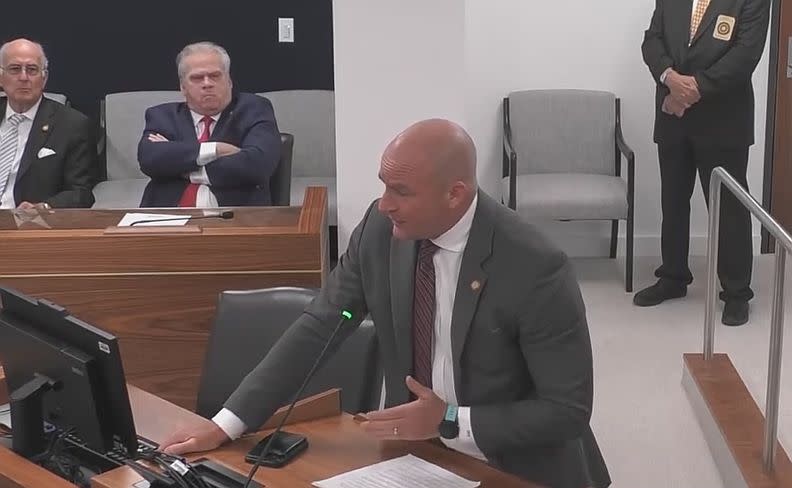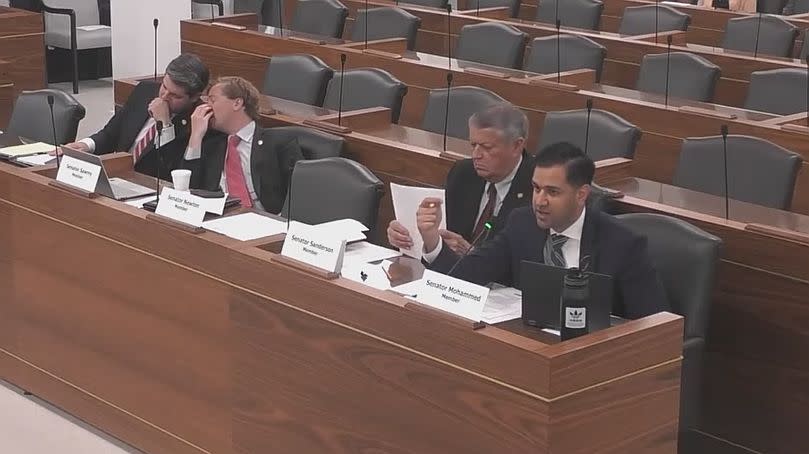State Senate considers bill to automatically transfer more juveniles to adult court

Photo: Getty Images
It’s been several years since North Carolina joined the rest of the nation by enacting “Raise the Age” legislation that did away with the presumption that 16- and 17-year-olds accused of crimes would be tried and punished as adults.
In the years that have followed, however, debate has continued over when and how the presumption that kids will be treated as juveniles can be waived and a transfer to the adult system effected.
Last June, the state House passed House Bill 834 — a measure that would expedite some transfers for minors charged with serious felonies — and on Tuesday, the Senate Judiciary Committee took up the bill with a proposed committee substitute and several modifications.
One proposed change requires that certain serious offenses committed by 16- and 17-year-olds be expressly excluded from the definition of “delinquent juvenile” — a change that would effectively reinstate the old law for those offenses.
Another similar modification to the law would state that juvenile court is divested of jurisdiction and superior court gains exclusive jurisdiction upon the return of an indictment.
Senator Danny Britt said a bill that would automatically treat more juveniles accused of crimes as adults would streamline the court process. (Photo: NCGA videostream)
“The bulk of these cases are already being prosecuted in Superior Court by way of an indictment. What this does is just start those in Superior Court, but still provides they could be prosecuted as juveniles following a hearing or by consent of the parties,” explained Senator Danny Britt.
The Robeson County Republican said the legislation he’s advocating for clarifies the jurisdiction issue.
Sen. Britt said the new language will add an additional crime that penalizes an adult for enticing a juvenile into committing a violent crime.
“A lot of the violent crime that’s being committed by juveniles is a result of recruitment from individuals who are adults, having those juveniles commit the crime knowing that that crime has less penalty for the juveniles,” he said.
Not everyone in attendance at the meeting, however, was in agreement about the necessity for the bill.
Senator Mujtaba Mohammed, D-Mecklenburg, worried some minors could fall into the gaps of the justice system after being transferred to an adult setting.
“My concern is that if we remove that 10-day hearing period, that it’s going to create more issues, especially if the kid doesn’t know that he can request it, because most kids don’t,” said Mohammed.
Britt responded that the juvenile’s attorney would be competent enough to know the law when it came to custody hearings.
“I would love to have full faith in my fellow members of the bar. My concern is, and you know this as well as I do, especially in rural parts of our state, the majority of this work is done by court appointed lawyers who are paid very little at our court appointed attorney level,” Mohammed said.
Britt said the law allows them to come back every 10 days and request the court look at their pre-trial release conditions.
“I think that every attorney should be able to understand that and do their job.”
More than 400 teens transferred to adult court
William Lassiter, deputy secretary of the Division of Juvenile Justice and Delinquency Prevention and one of the champions of the Raise the Age law, was similarly hesitant to sign off on the legislation. He noted that transfers to adult court are already taking place regularly.
Senator Mujtaba Mohammed believes there is a benefit to keeping the majority of cases in the juvenile justice system. (Photo: NCGA videostream)
“Last year, 411 kids were transferred to adult court from juvenile court,” said Lassiter. “We know that that is happening on a routine basis already. I’m confused about exactly what we’re trying to fix, if so many kids are already being transferred to adult court.”
The purpose of having them start in juvenile court is to have a juvenile court counselor oversee that process and manage the process moving forward, making sure that that juvenile is getting the services that they need, Lassiter reminded the committee.
Chuck Spahos, General Counsel for the Conference of District Attorneys, defended the proposed changes, saying they would clarify that after an indictment is returned by a grand jury that the case is handled in Superior Court not juvenile court.
Sen. Mohammed said it’s important legislators get this new language right before advancing the measure to the floor.
“In juvenile courts, I try to remind people, kids are actually punished there,” he said. “The great thing about juvenile courts is that you get one judge, you get that one kid, you get the same prosecutor, you get the same juvenile defender, and the most important piece, it’s the only jurisdiction where you get to hold parents accountable.”
Mohammed said while lawmakers are debating this legislation, they must also acknowledge the state never fully funded Raise the Age implementation.
And as they consider these changes, there’s a 32% vacancy rate when it comes to court counselors, and a 45% vacancy rate for detention staff, said Mohamed.
“We have to remember, when you get that adult criminal record, that’s going to follow you for the rest of your life.”
Senate Judiciary Committee adjourned without taking a vote. The measure is expected to be back before them next Tuesday.
William Lassiter, deputy secretary of the Division of Juvenile Justice and Delinquency Prevention reminded lawmakers considering a bill to automatically transfer more juveniles to the adult criminal justice system that more than 400 minors were sent to adult superior court in 2023. (Photo: NCGA videostream)
The post State Senate considers bill to automatically transfer more juveniles to adult court appeared first on NC Newsline.



